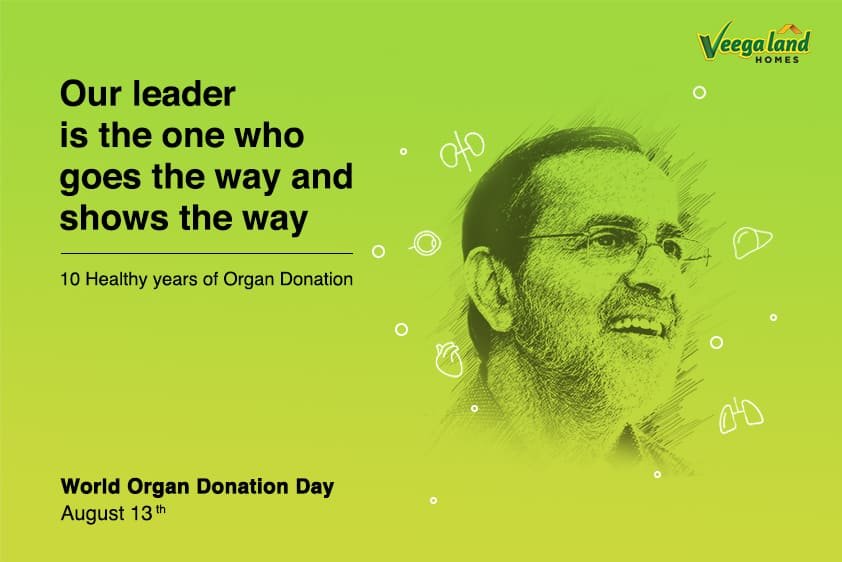CADAVER DONATION AND ITS WHEREABOUTS

According to a survey, 500,000 people die annually in India, due to the unavailability of organs. As per the Organ Procurement and Transplantation Network data, around 106,690 men, women, and children are on the national transplant waiting list.
Even when medically, one deceased organ donor can possibly save up to eight lives and enhance over 75 more, the statistical reality shows that there are far more people in urgent requirement of a transplant, than there are people willing to donate an organ. Every year, the 13th of August is observed as World Organ Donation Day, with the objective of motivating normal human beings to pledge to donate organs after death and to spread awareness about the importance of organ donation.
With the fact prevalent that it is very hard to find living organ donors in our country, let’s have a look at Cadaver donation and its whereabouts:
• What is cadaver donation?
The cadaveric donation comprises organ donation – taking organs such as heart, lungs, kidneys, intestines, liver, pancreas, etc. as well as tissue donation-taking tissues (skin, corneas, tendons, bone) from brain dead people for the purpose of transplanting them into another person who is in need of an organ.
The Government of India in 1994, passed the Transplantation of Human Organs Act, an act that legalized the concept of brain death and, for the first time, made possible organ transplantation from brain dead donors.
• Brain death
Brain death (brain stem death) is defined as the irreversible loss of all functions of the brain, including the brainstem. It is not a coma or a persistent vegetative state. The injury that occurred to the brain causes the complete loss of brain functions, but the heart continues to beat for a few hours or days and the vital blood supply to the organs is maintained.
The diagnosis of brain death is based on simple bedside tests performed by a team of doctors which are repeated after 6 hours. Once a patient is concluded to be brain dead, he or she is legally and clinically dead.
• The process of donation
Once the death of an individual has been confirmed by a medical panel consisting of four doctors, including one government service practitioner, present to authorize and declare a patient brain dead, the members of the medical team will speak directly to the family to determine if their relative had expressed any particular wishes regarding his/her organ donation.
In the case of children, the wishes of the child’s parents will be explored regarding organ donation. It demands a considerable effort from the medical team to convince the family about brain death, afterward which the trained transplant coordinators can begin the process of counseling them.
Time is at stake under such a circumstance as the gradual deterioration of all organs and tissues is inevitable as the capacity of the body to repair damaged cells is lost and the heart eventually stops beating. Therefore, once the family gives their consent for organ donation, a single heart beating brain-dead donor can possibly save nine lives by donating their kidneys, lungs, heart, pancreas small bowel, and liver, which can be split into two. Evaluating the potential donors and receiver’s medical suitability of each organ, current medical conditions, as well as past medical history, are crucial steps.
Once the family has made their decision to donate the brain-dead patient’s organs, they will be asked to sign a consent form that documents the organs and/or tissues they wish to donate. The recovery of the organs will be performed in the operating room while the transplant coordinator oversees the arrival and departure of the surgical recovery team. Each organ has different time frames within which they have to be transplanted, once removed from the donor.
Ten years ago, on his 60th birthday, our founder and business magnate Kochouseph Chittilappilly redefined the word “charity” by donating his own kidney to a truck driver, who was a complete stranger to him until then. His kind-hearted gesture created a chain reaction across the nation and made him well-recognized today as the biggest advocate of organ donation in Kerala. Ten years later, both Mr. Chittilappilly and the truck driver Joy, who received his kidney, are keeping well. K Chittilappilly Foundation established by him is very well active in promoting awareness among the public on organ donation and its importance.
In a society where there is a serious scarcity of living donors, the age-old religious and cultural taboos still prevent individuals from the cadaver donation. Therefore, breaking such taboos and increasing the supply of organs (both living donors and cadavers) is of utmost importance and should be ensured so that every patient across the nation have equitable access to transplant.
Kochouseph Chittilappilly’s words about the importance of cadaver donation: https://youtu.be/skggDeZ7cdk
Recent Blog

Location Matters: Finding the Ideal Neighborhood for Your Apartment
Location is undoubtedly the most important factor when searching for an apartment. The safety and homely feeling of the neighborhood is what plays a key role in offering the peace of mind and sense of security you a... Read More

Apartment Amenities: Must-Haves to Look for When Buying
Be it as your first home, an investment, or an attempt to downsize - buying an apartment is a significant milestone for most of us. However, choosing the right apartment involves careful consideration of numerous fa... Read More

Transform your apartment balcony into a serene retreat
An apartment with a small or large balcony is an absolute necessity for today’s aspiring homebuyers. However, simply maintaining it the way that it was handed over doesn’t do justice to the potential of that spa... Read More

Your Gateway to Luxury Living in Kochi: Veegaland Green Heights
“Magnum Opus” is a term widely used in the universal literary, arts and academic contexts. It simply denotes a great value to a particular work of an individual - that is considered as the greatest work of... Read More

